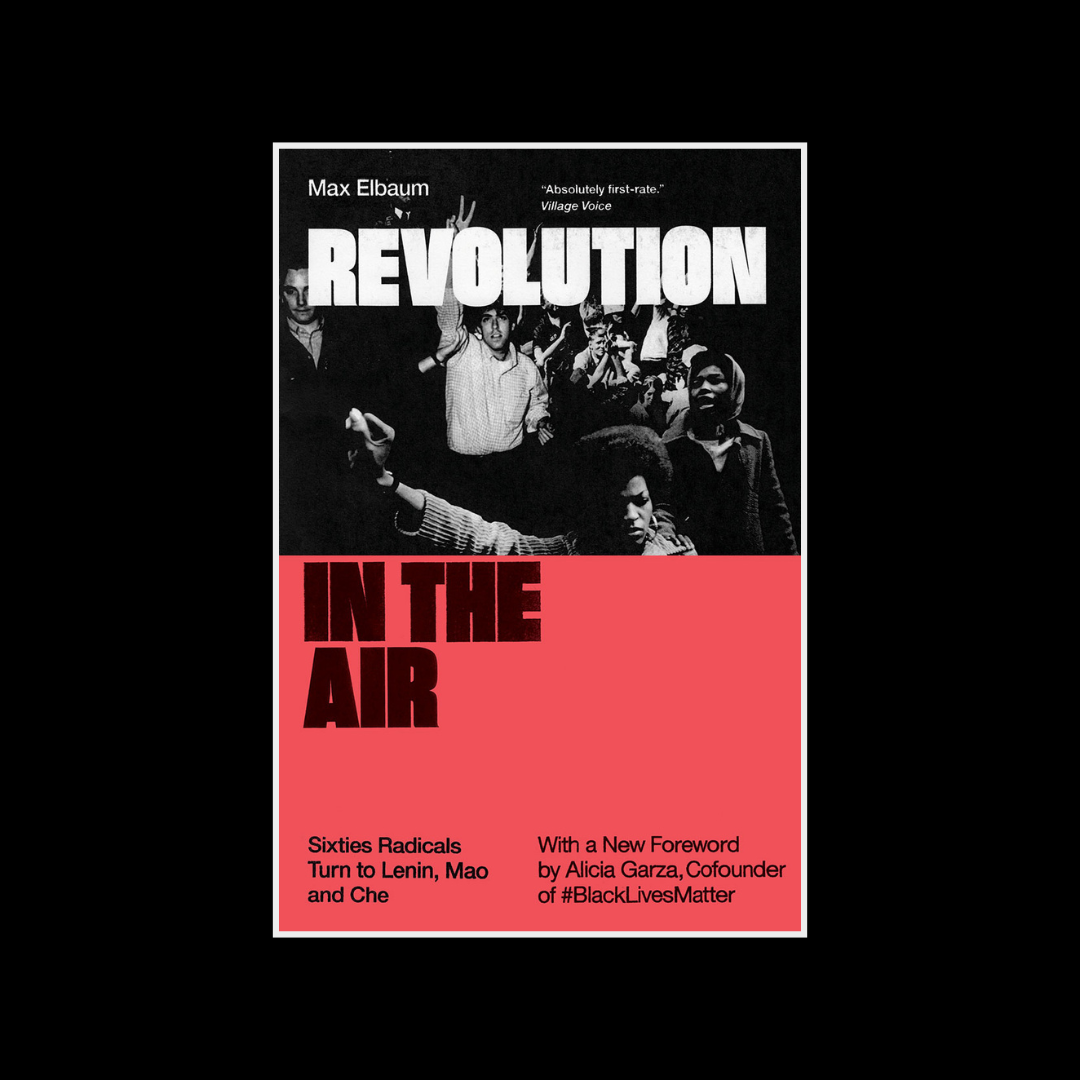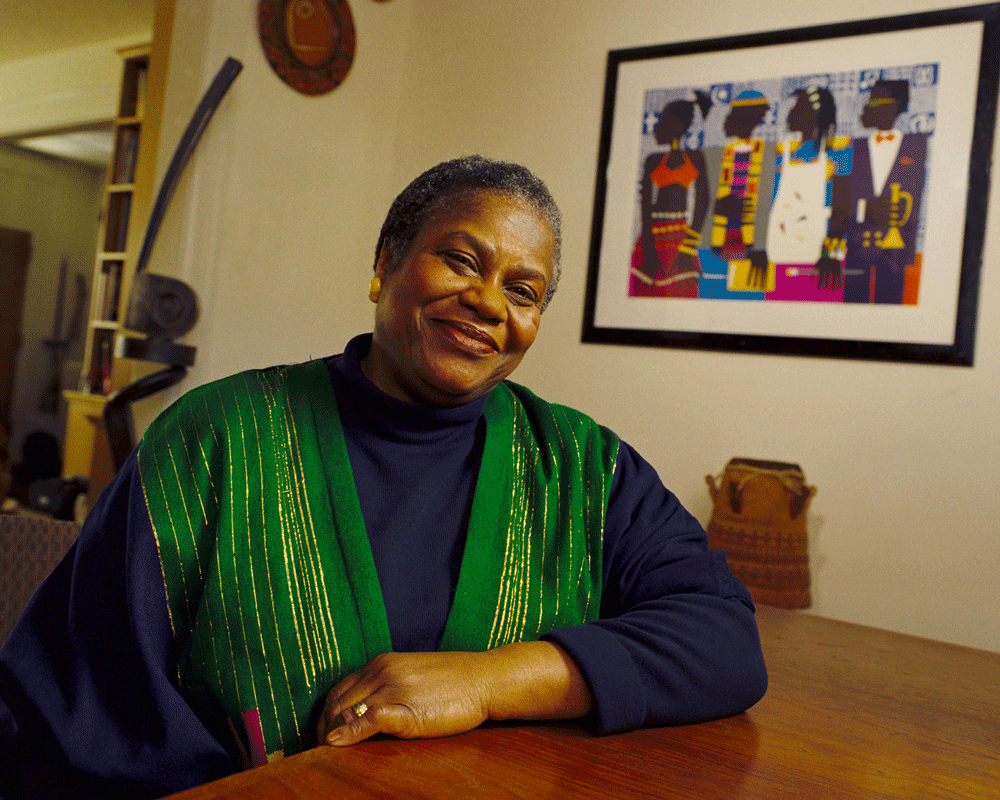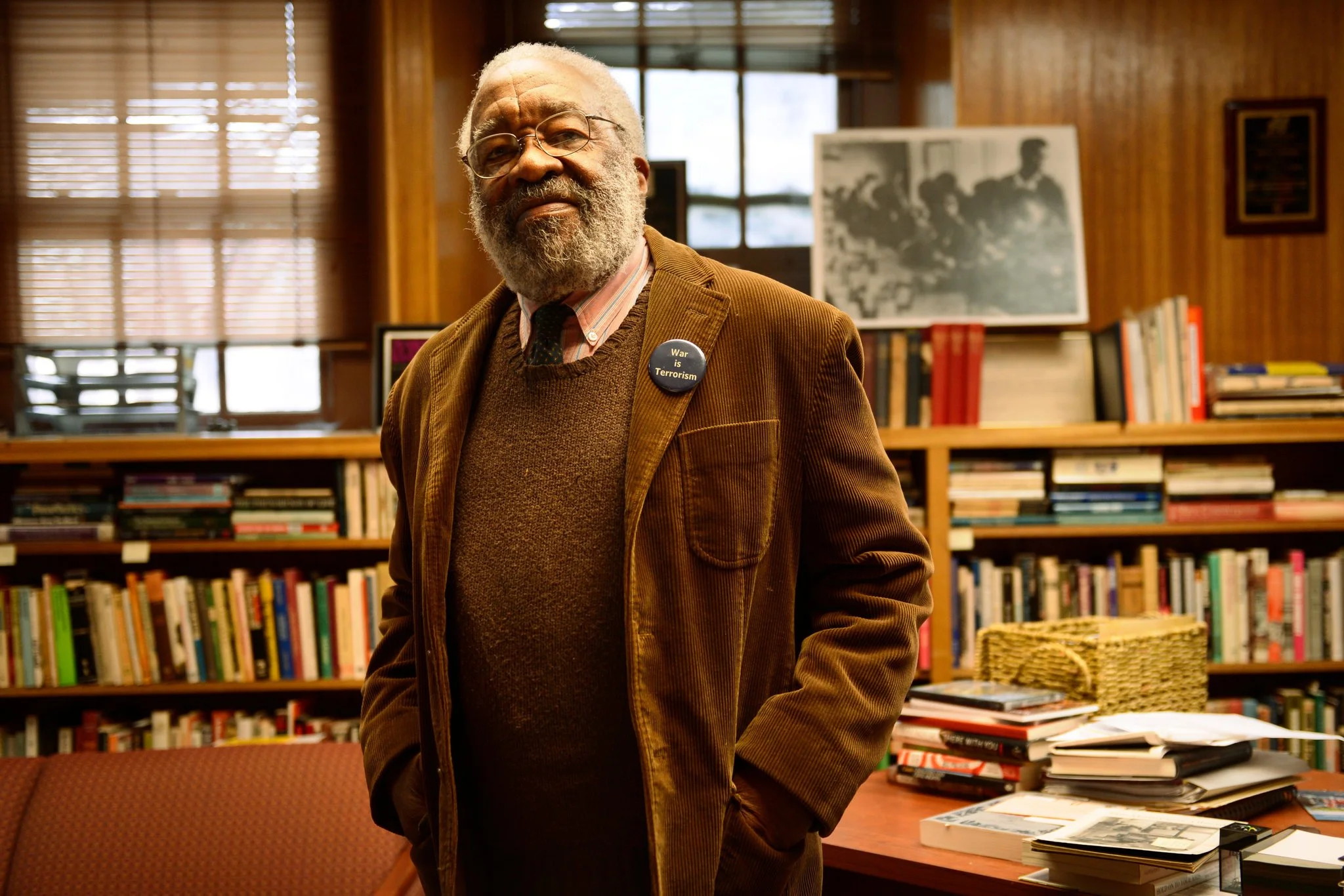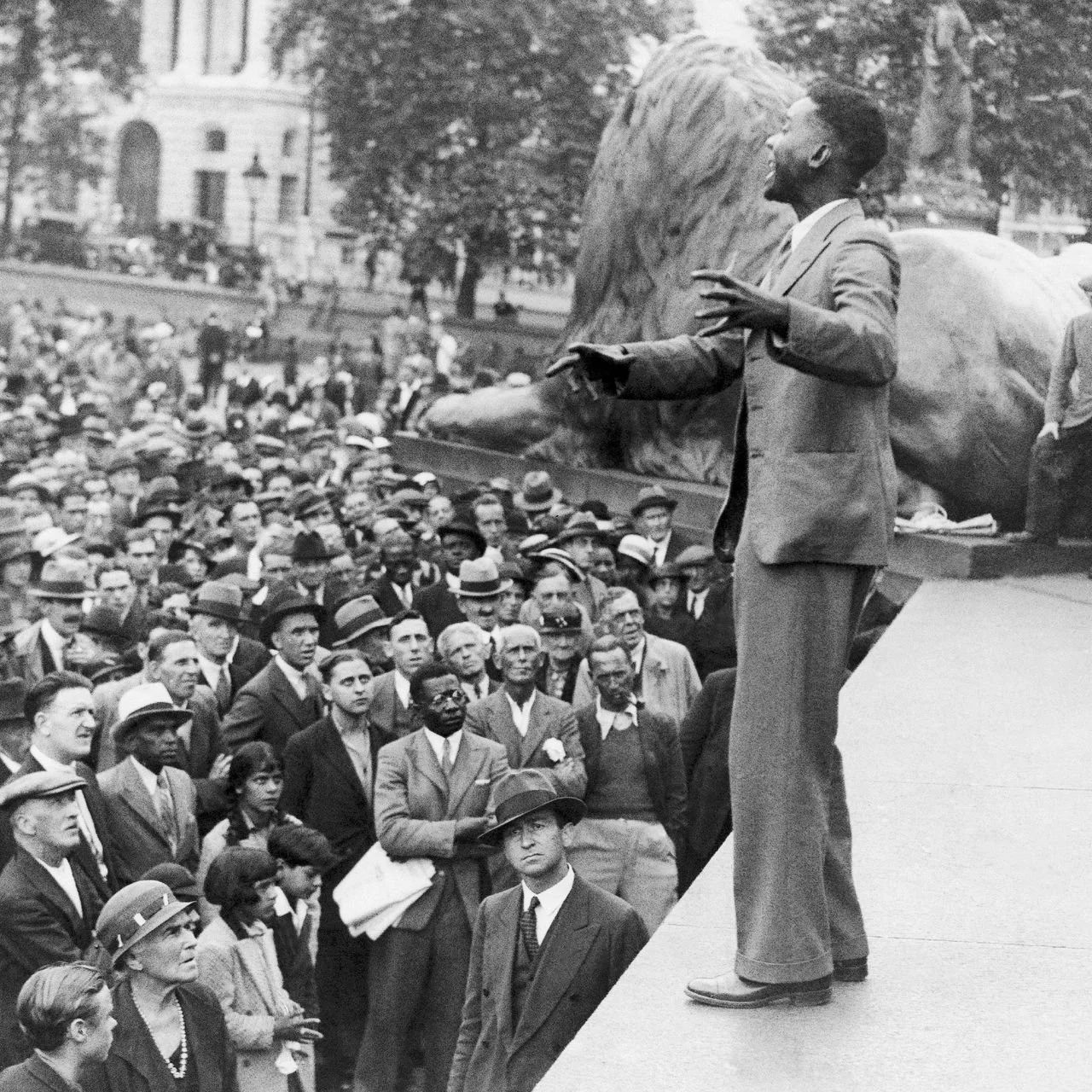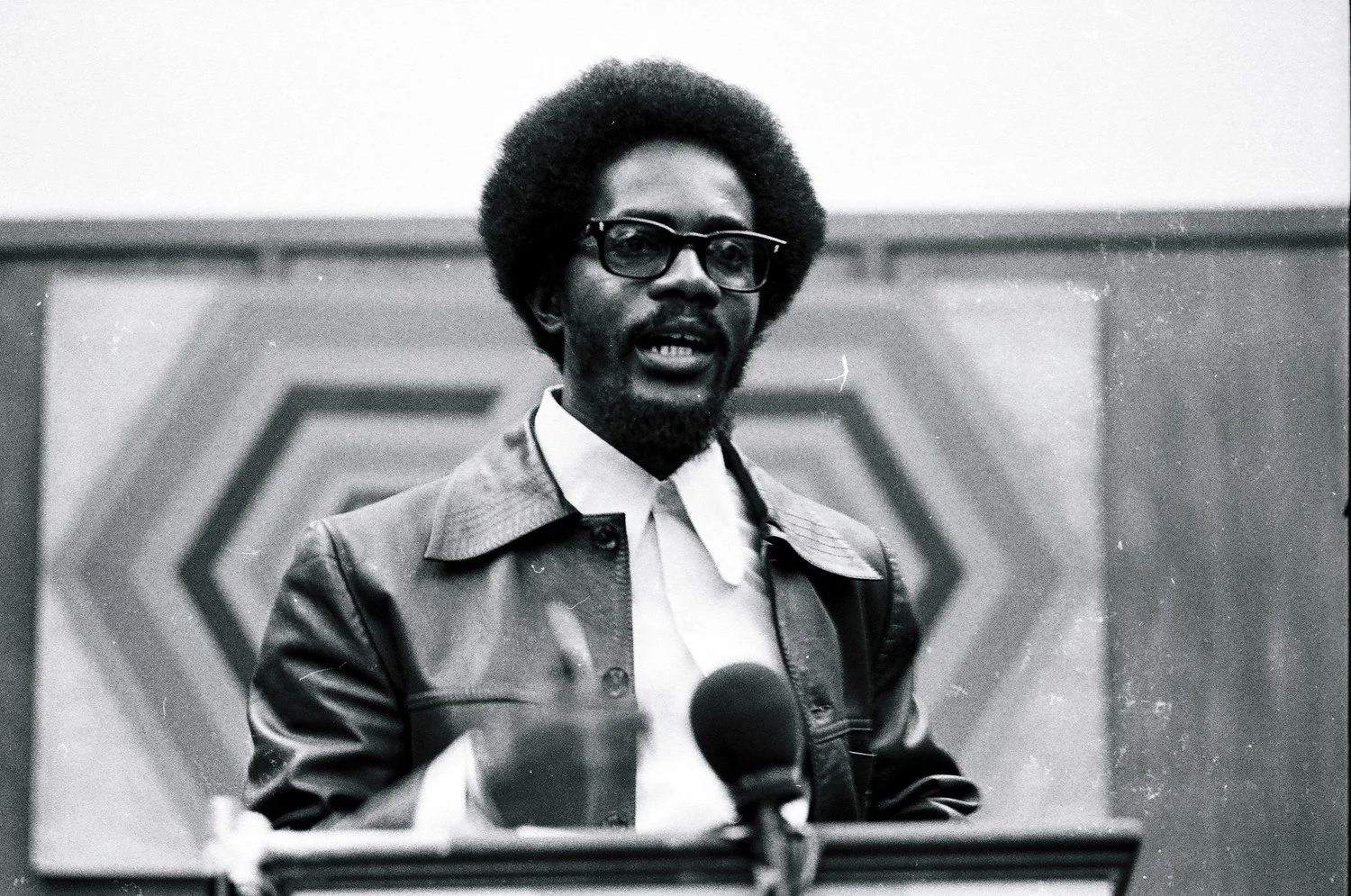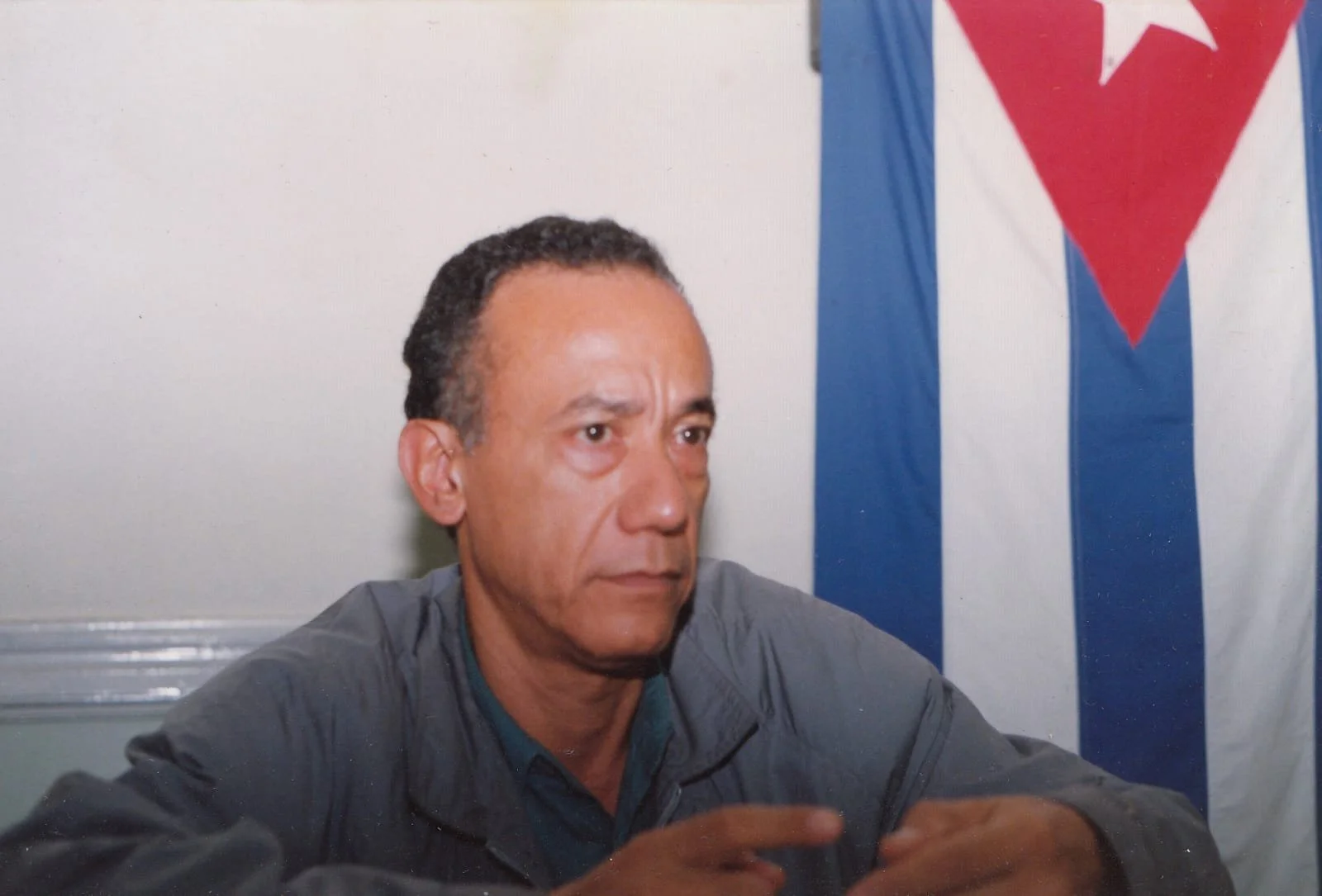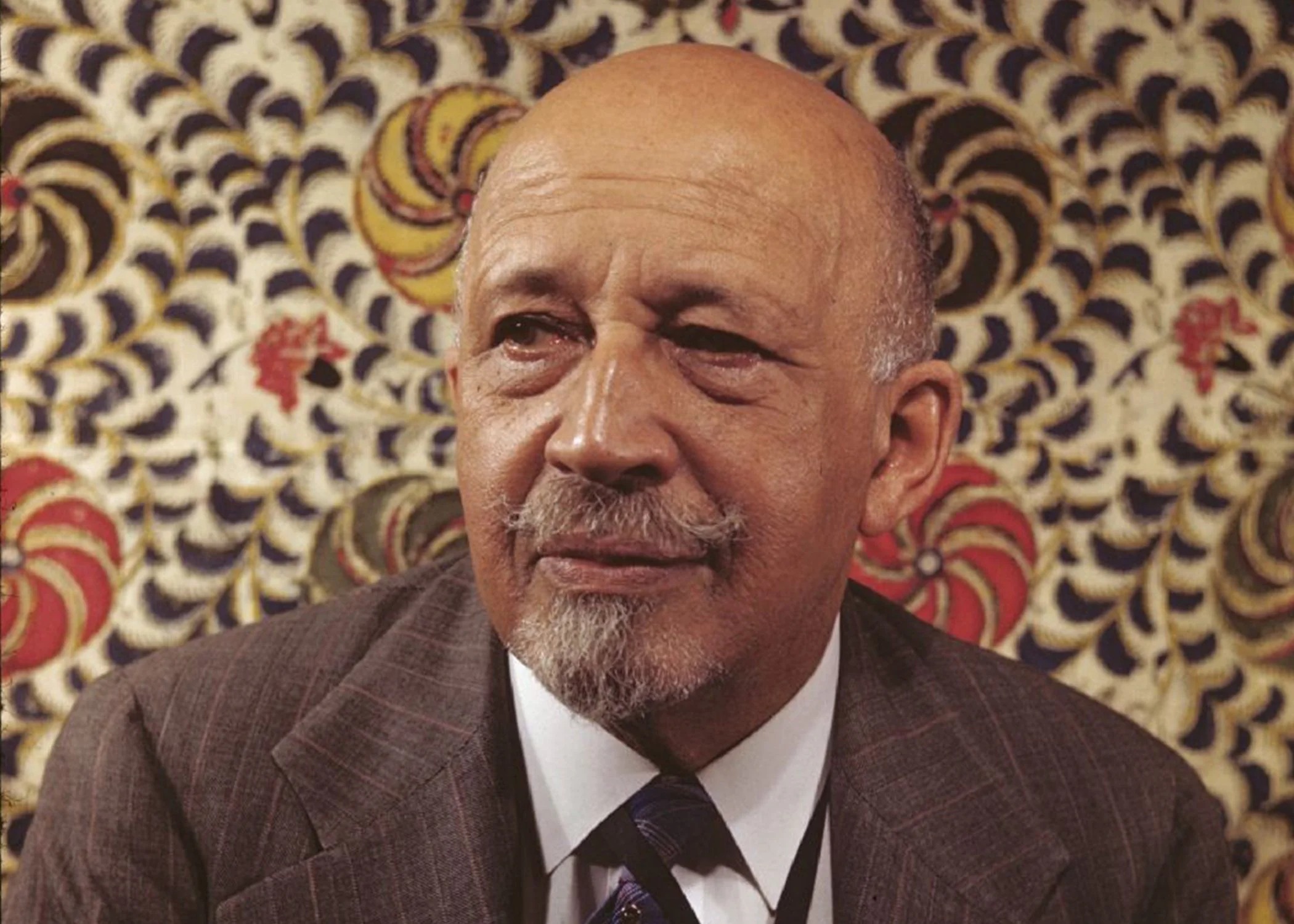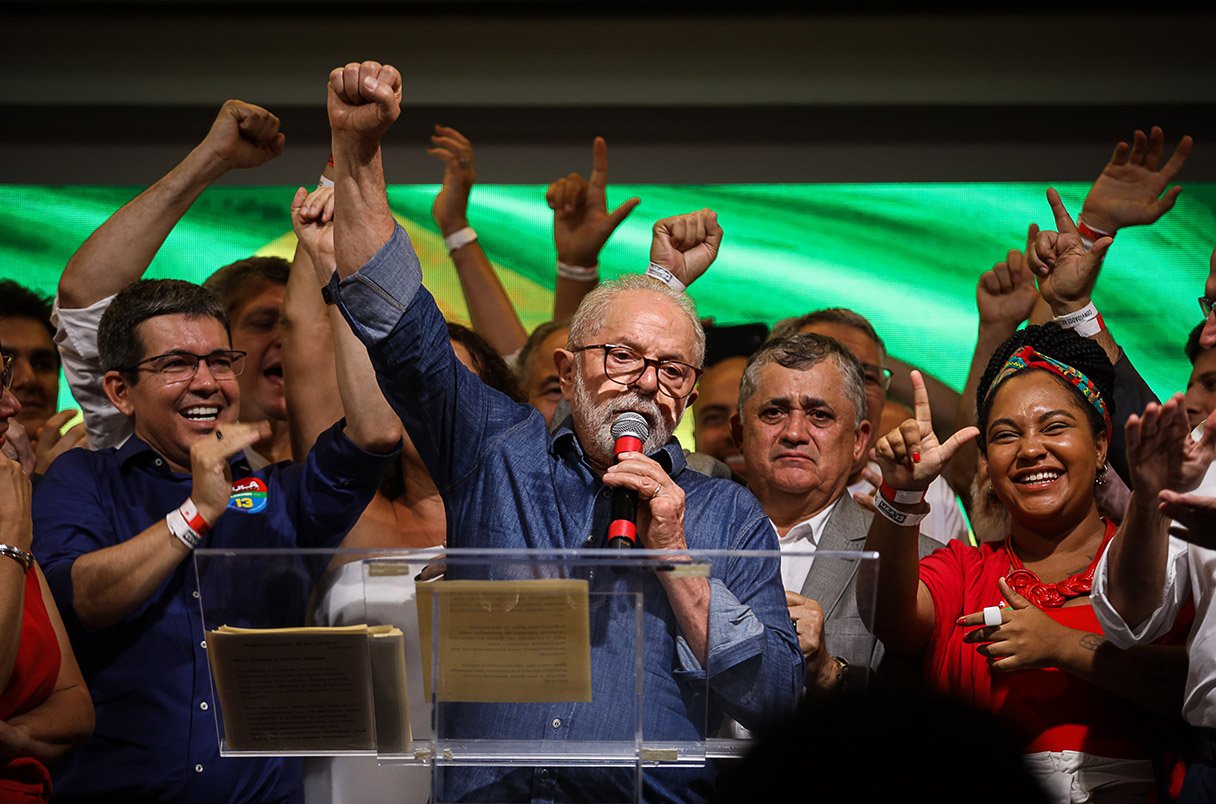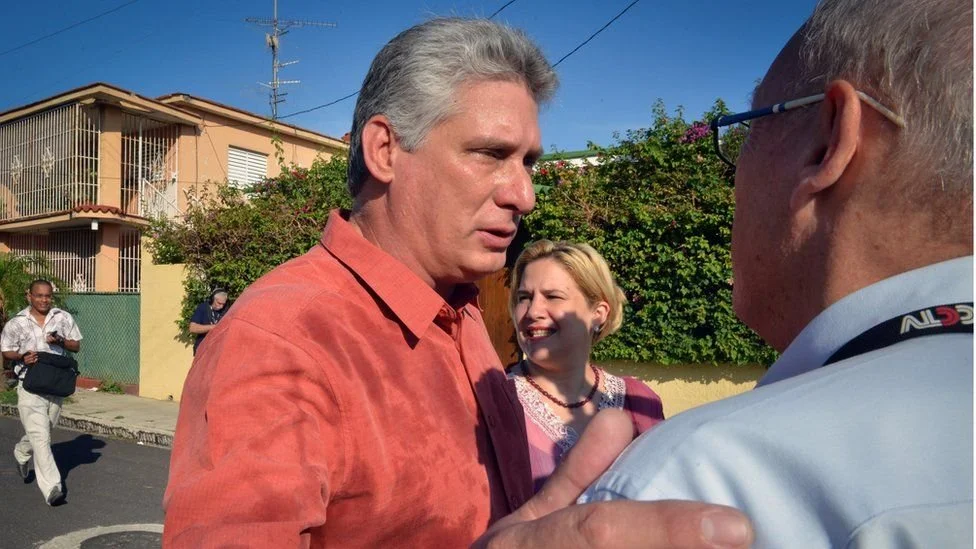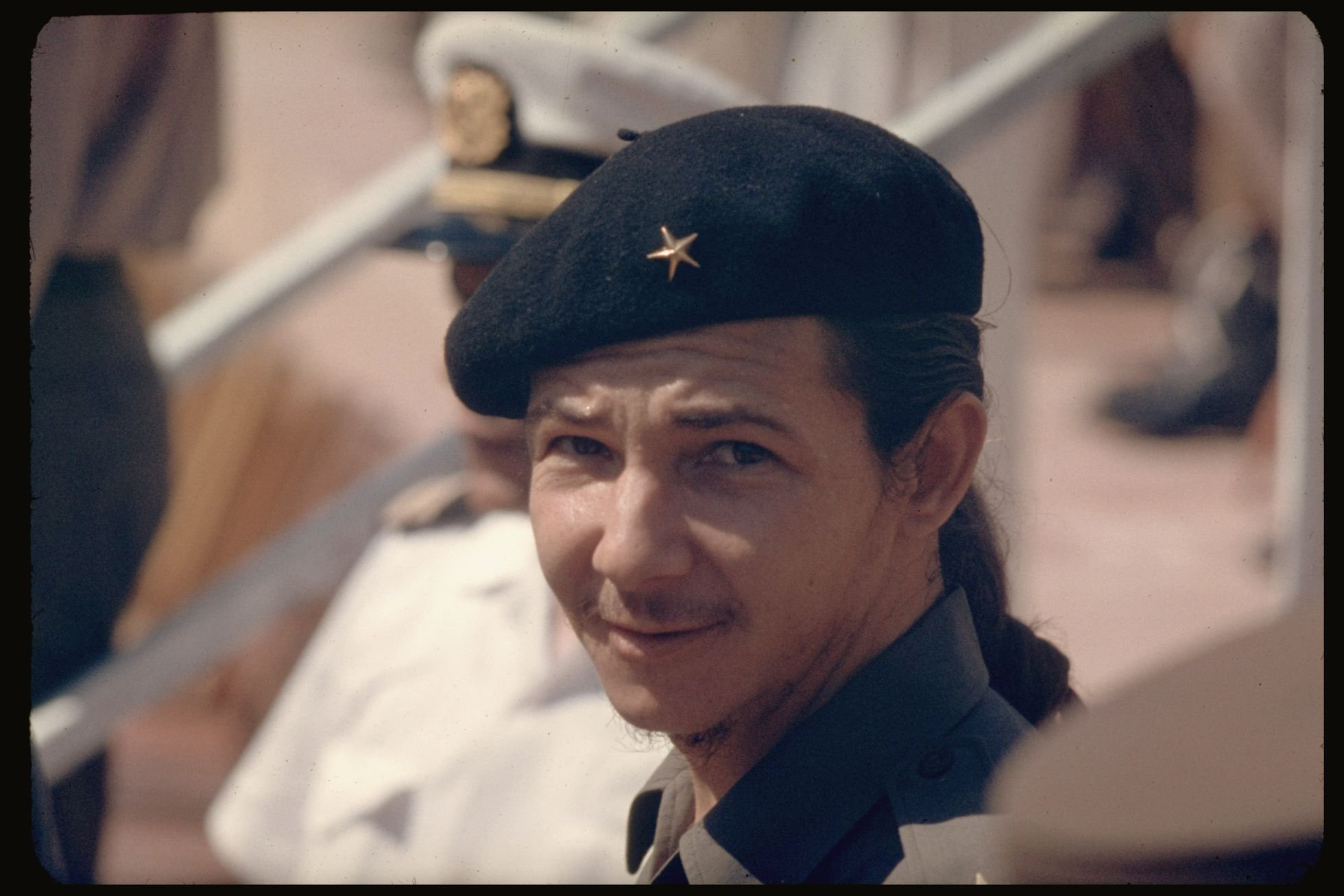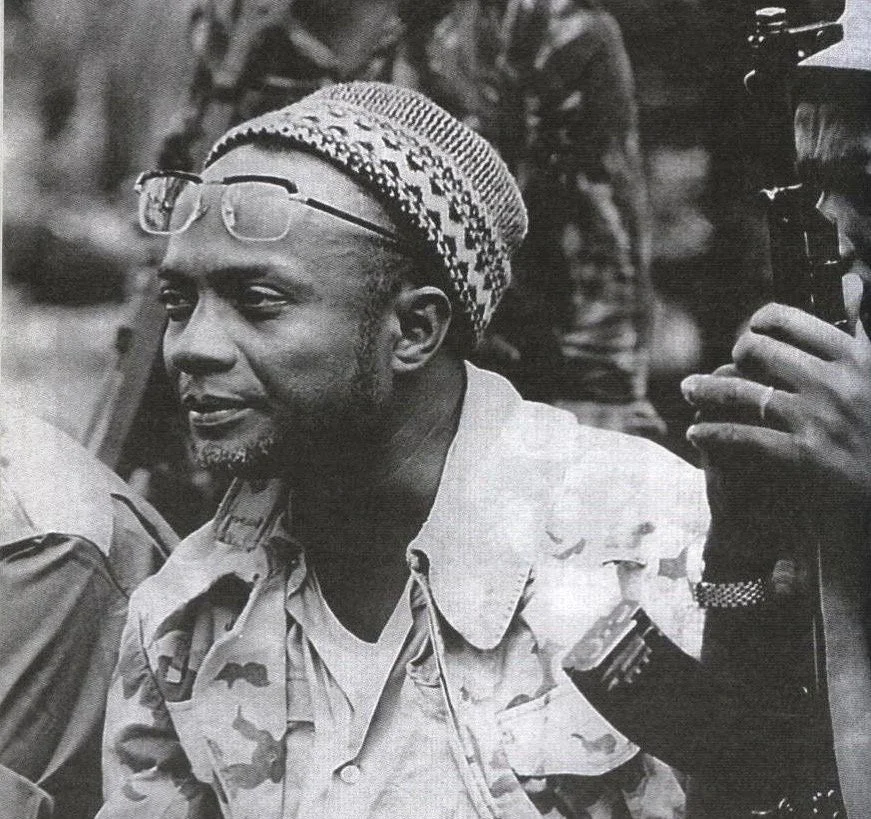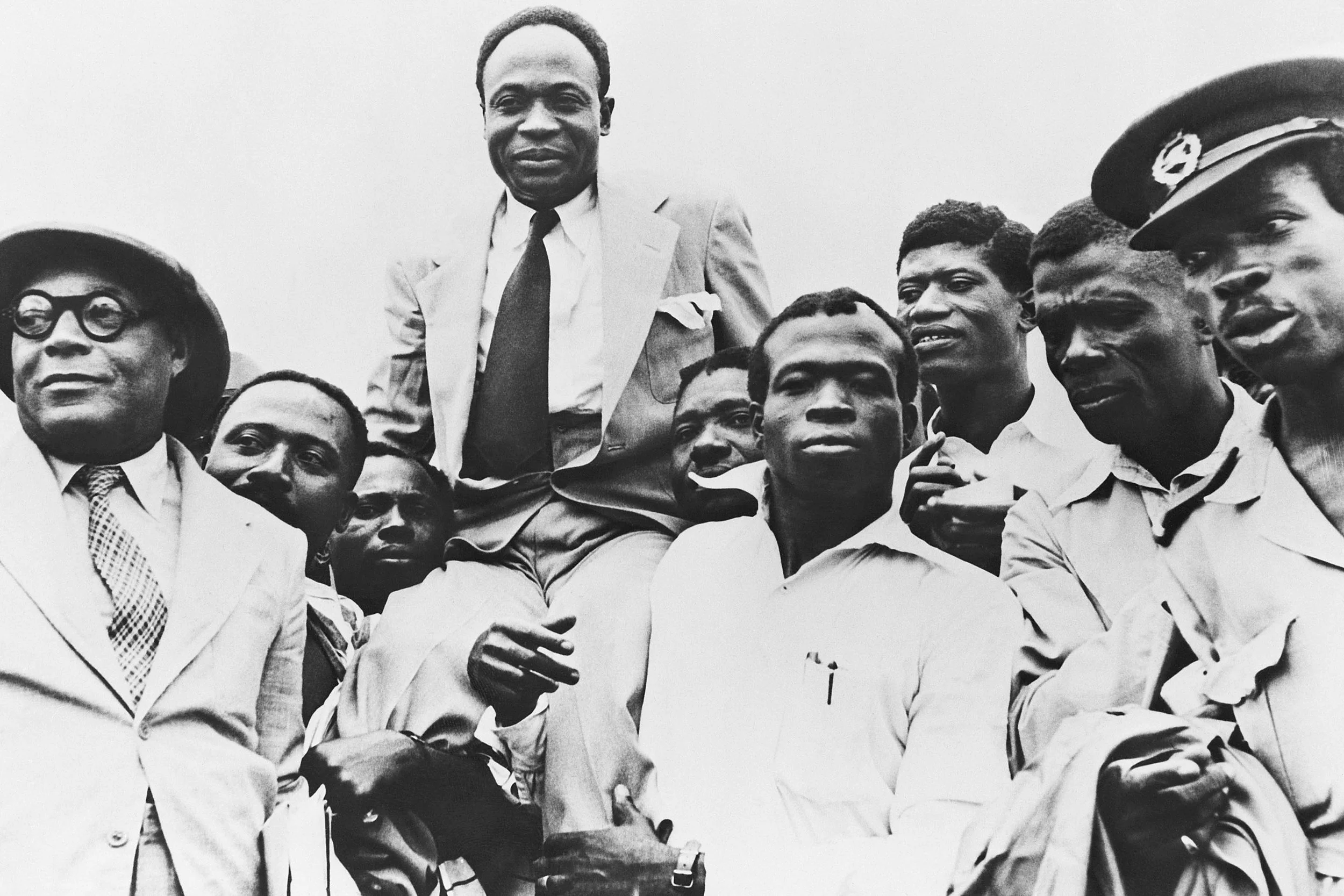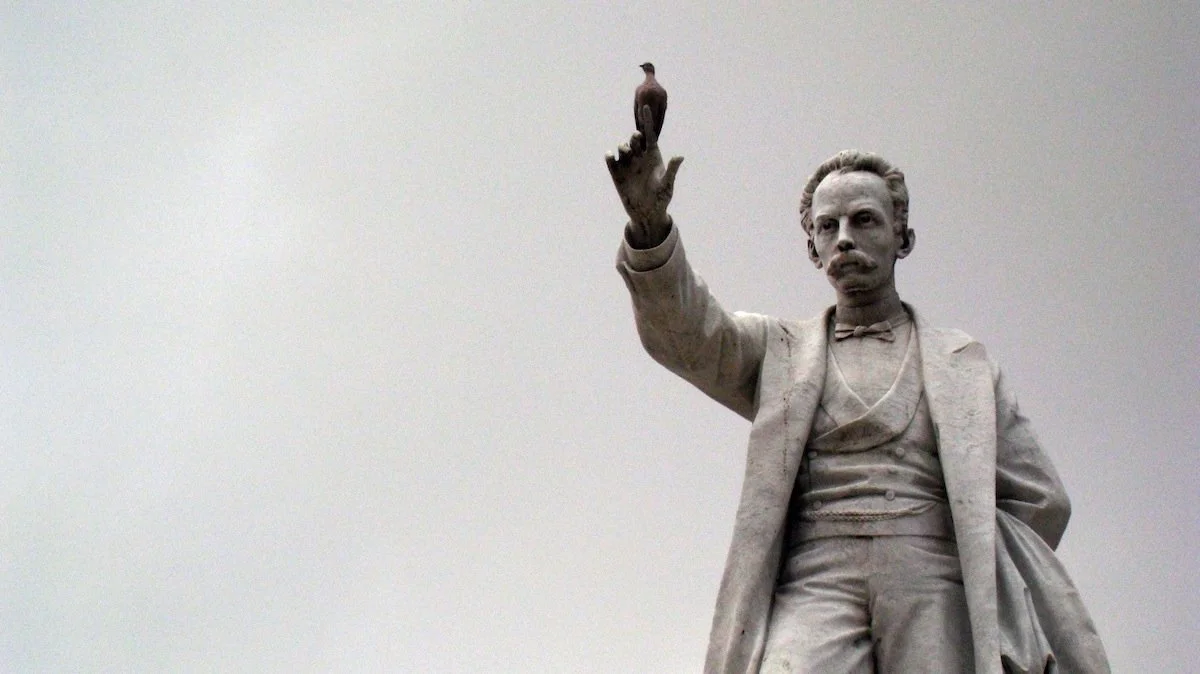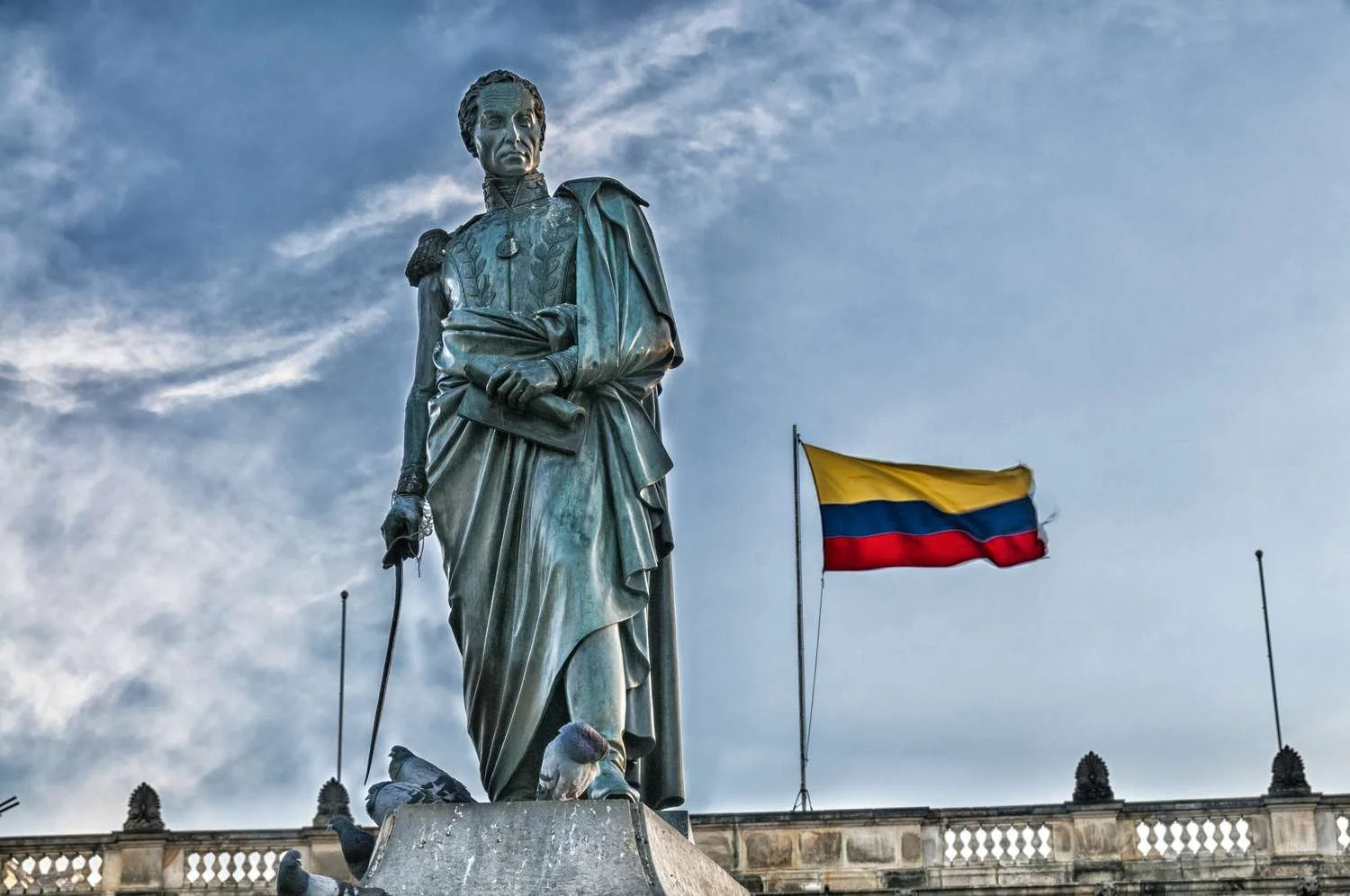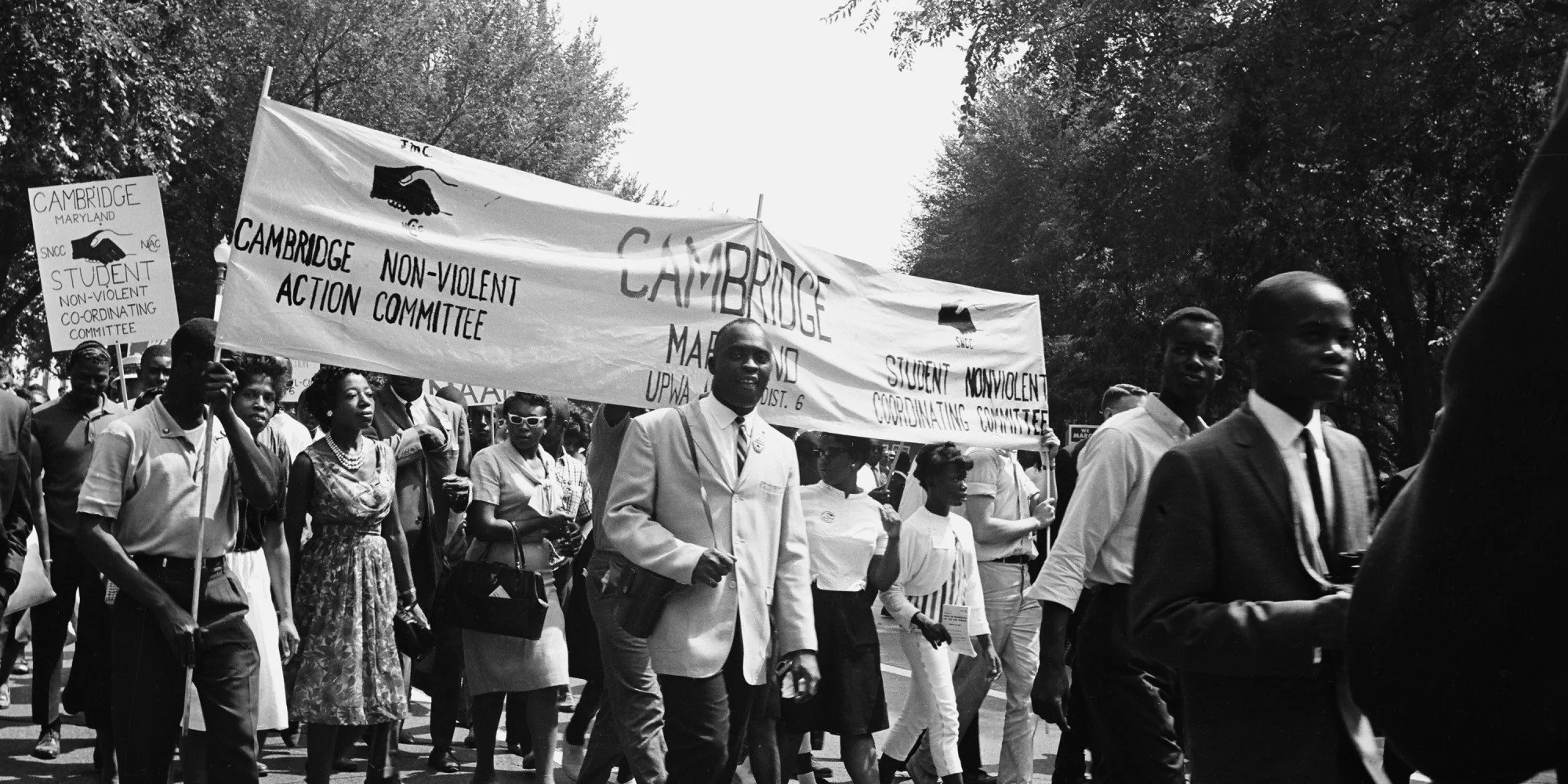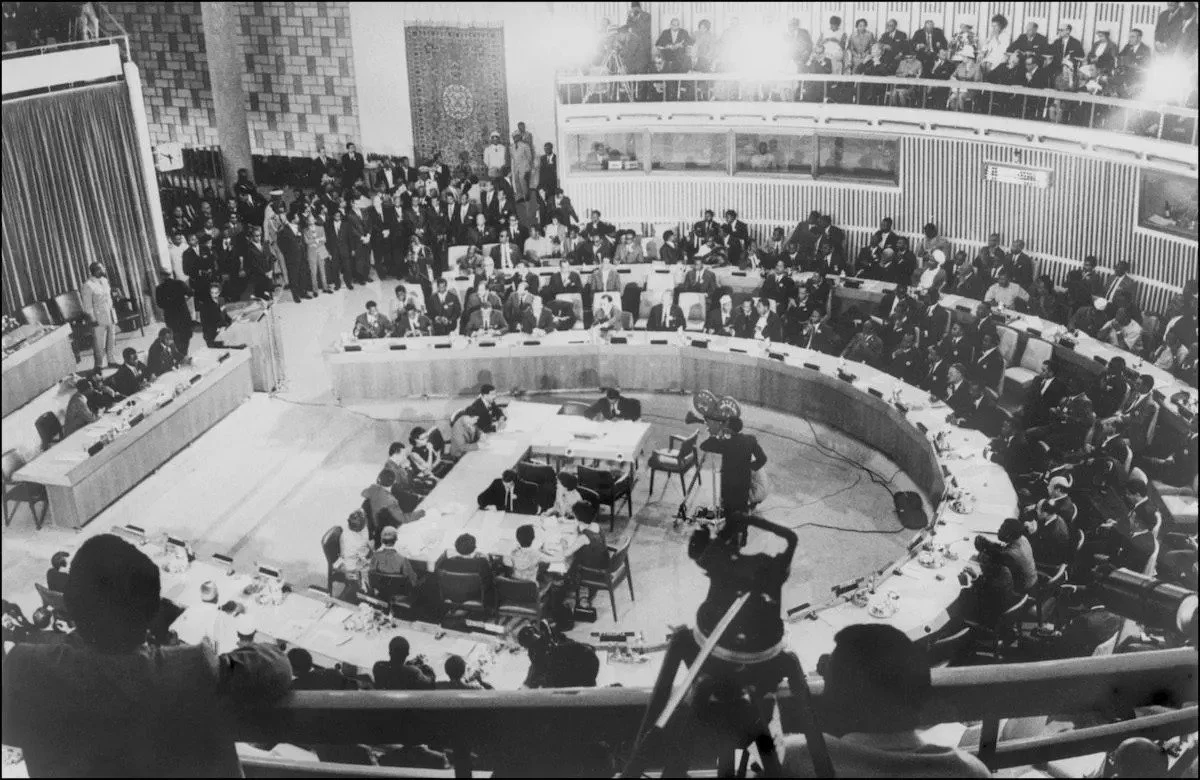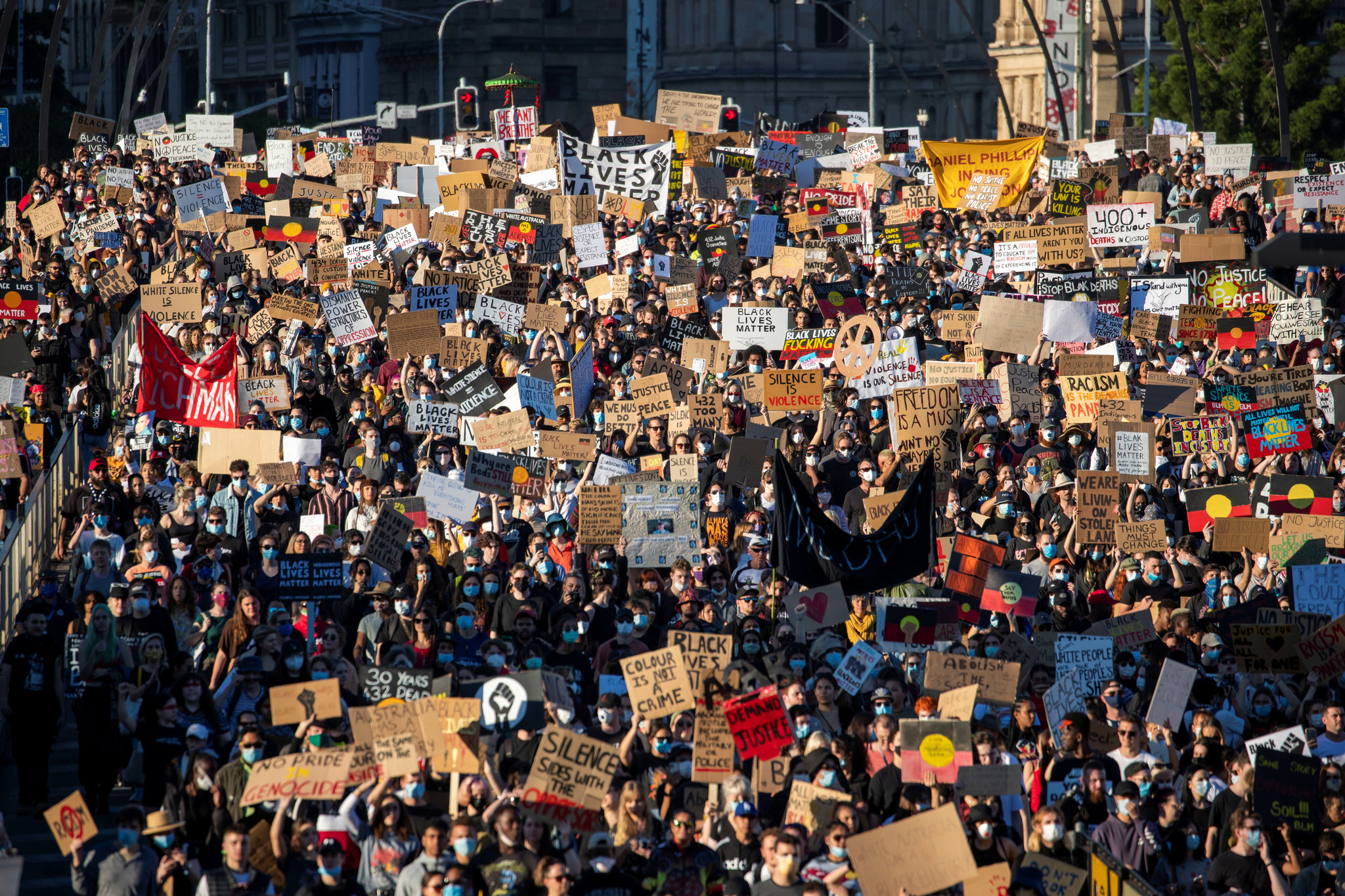
NEW WORLD COMING
“I still think today as yesterday that the color line is a great problem of this century. But today I see more clearly than yesterday that back of the problem of race and color, lies a greater problem which both obscures and implements it: and that is the fact that so many civilized persons are willing to live in comfort even if the price of this is poverty, ignorance, and disease of the majority of their fellowmen; that to maintain this privilege men have waged war until today war tends to become universal and continuous, and the excuse for this war continues largely to be color and race.”
— W. E. B. Du Bois, 1953 Introduction to the Jubilee Edition of Souls of Black Folk, Blue Heron Press
Welcome to the political education material to accompany our interview program, “New World Coming.” In this series, which can be found on YouTube, we interview scholars, activists, and leaders who have worked with and studied Black liberation struggles across the Americas to explore how movements and communities unite to resist, fight back, make democratic progress, defeat and transform capitalist social relations of life.
Our host, James Early, came up through the New Communist Movement and has a lifetime of experience thinking about and collaborating with leaders and movements on Afro-descendent identity and culture and anti-racist struggle across the Americas. Every episode is accompanied by resources on the referenced materials, concepts, people, historical movements, and organizations brought up by James and our guest, as well as terms and definitions.
Episode 10: Conscious Stream of Struggle
James Early with Manolo De Los Santos and Claudia De La Cruz
James Counts Early joins Manolo De Los Santos and Claudia De La Cruz, co-Executive Directors of The People’s Forum. For this episode, James becomes the interviewee and he discusses the personal and historical currents that developed his radicalization and informed his politics. They also discuss the conversations that led to the creation of New World Coming along with the legacy of Black liberation and socialist movements and struggles that we have drawn upon in this project.
Released December 16, 2022
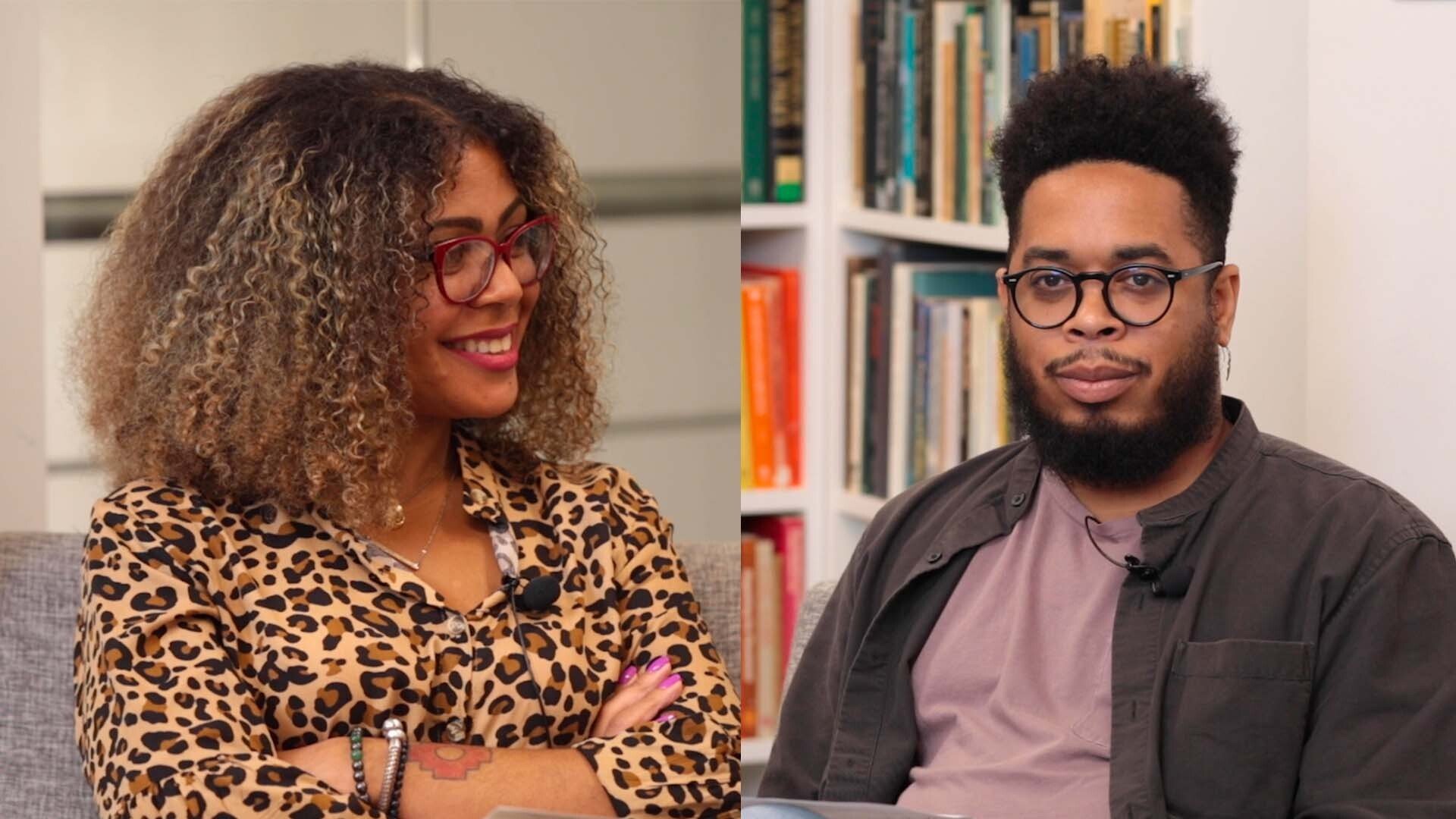
Manolo De Los Santos and Claudia De La Cruz are the Co-Executive Directors of The People’s Forum and are both popular educators and lifelong, experienced organizers from New York. Before joining TPF, both have organized solidarity and education programs in Latin America, the Caribbean, and in the United States.
ABOUT THE SPEAKERS
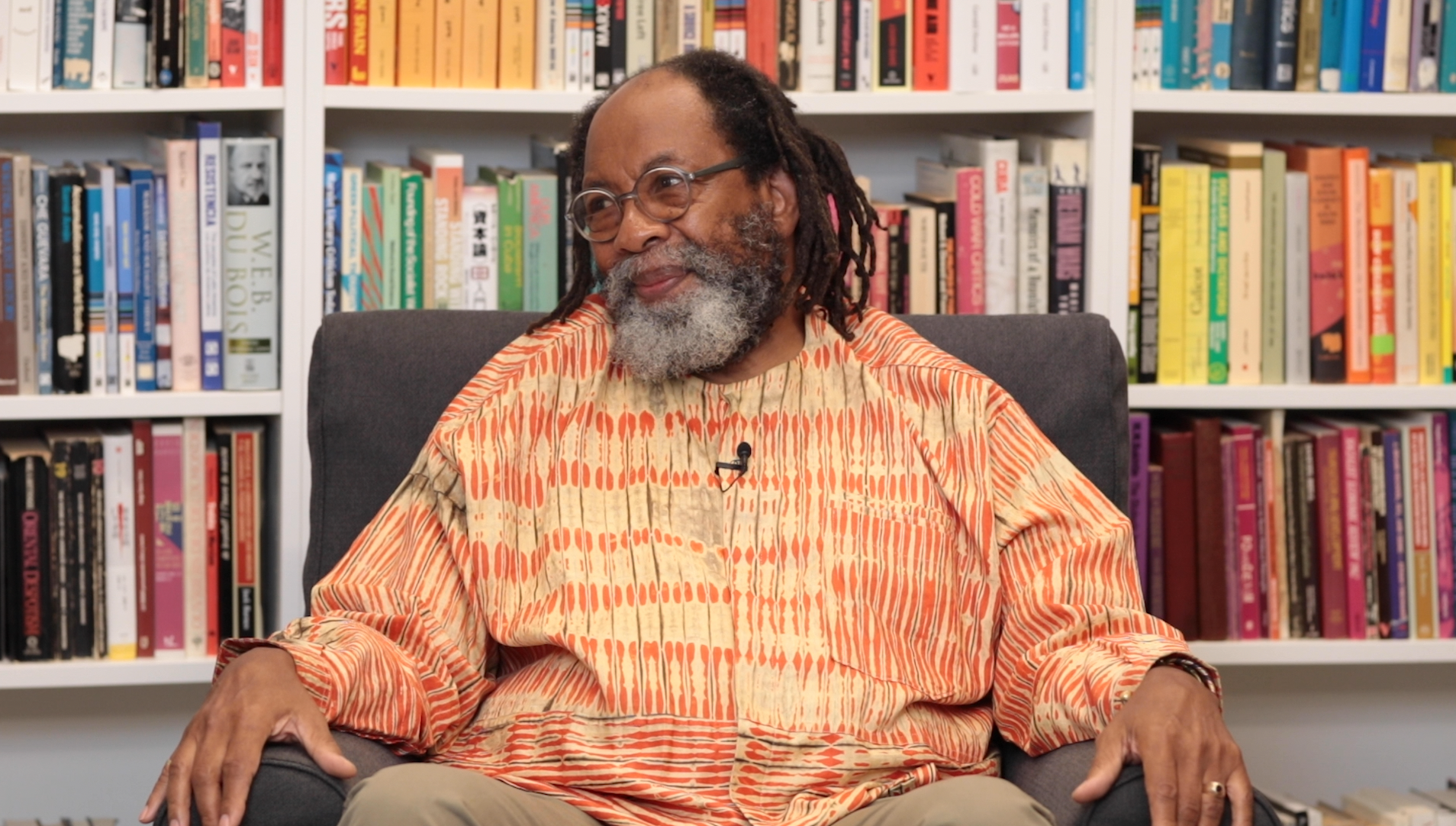
James Counts Early is the former Director of Cultural Heritage Policy, at the Smithsonian Center for Folklife Programs and Cultural Studies. James has been a leading voice in the African diaspora and has spent his life connecting with Afro-descendant movements across Latin America and the Caribbean. As a skilled critical thinker of culture, race, and capitalism, James has been a longtime friend to socialist countries, movements and Black liberation struggles across the world.
REFERENCES
Materials
-
![]()
Black Bolshevik by Harry Haywood
Black Bolshevik: Autobiography of an Afro-American Communist by Harry Haywood (see below) is a full account of Haywood’s life, from growing up as the son of former slaves to living, studying, and working in the Soviet Union to develop the question of race in the global class struggle. In this book, Haywood gives first-hand accounts of the Chicago race riot of 1919, coordinating the Scottsboro Boys’ defense in Alabama and other CPUSA organizing in the South, the Spanish Civil War, working on the Negro Commission for the Comintern in the Soviet Union, the battle against CPUSA revisionism and founding the New Communist Movement.
-
![]()
The Souls of Black Folk by W.E.B. Du Bois
The Souls of Black Folk: Essays and Sketches is a collection of essays by American sociologist W.E.B. Du Bois, primarily centered on the topic of race. Published in 1903, The Souls of Black Folk is considered one of Du Bois’s seminal works and an important piece in the field of social science. The text has been referenced and revisited by numerous thinkers, including Du Bois himself. In this text, Du Bois proposes a number of innovative concepts and ideas, including the theory of the “color line” as well as the idea that race develops a “double consciousness.”
-
![]()
Revolution in the Air by Max Elbaum
Revolution in the Air: Sixties Radicals Turn to Lenin, Mao and Che is a book on the history of the New Communist Movement in the United States during the 1960s and 70s, written by a former member of Students for a Democratic Society (SDS) and Line of March, Max Elbaum. Inspired by the national liberation revolutions in China, Cuba, Vietnam, and around the world, young activists in the United States embraced what they thought was Marxism oriented for the Third World. (Source)
People
-
![]()
Bernice Johnson Reagon
In 1961, Bernice Johnson Reagon (1942- ), a student at Albany State College, met organizers from the Student Nonviolent Coordinating Committee (SNCC) (see below) and agreed to help coordinate the national student sit-in movement. Having already been involved in Albany’s NAACP Youth Council, Johnson was already embedded in the civil rights movement but quickly recognized her talent for singing and performing could be tools for lifelong struggle. In 1962 she joined SNCC’s newly formed Freedom Singers and she would eventually go on to found other radical music formations, including Harambee Singers and Sweet Honey in the Rock, known for the popularization of music that uplifted working class struggles and Black liberation. (Source)
-
![]()
Vincent Harding
Vincent Harding (1931-2014) was a theologian, activist in the Civil Rights Movement, and a close colleague of Martin Luther King. In 1961, Harding and his wife moved to the South to join the movement and founded the Mennonite House in Atlanta, Georgia. Harding was a strong believer in the strategy of nonviolence, which informed his growing clarity and understanding of the US’s war in Vietnam at the time. In 1967, King asked Harding to draft a presentation on Vietnam for him to deliver at Riverside Church and the speech, “Beyond Vietnam,” became famous for its searing indictment of US foreign policy. After King’s death in 1968, Harding work with Coretta Scott King to establish the Martin Luther King Documentation Project, which is now called the King Center in Atlanta Georgia. (Source)
-
![]()
Harry Haywood
Harry Haywood (1898-1985) was a member of the Communist Party USA Central Committee from 1927 to 1938 and on the Politburo from 1931 to 1938. He was the leading proponent and developer of the theory that African Americans make up an oppressed nation in the Black Belt region of the South where they have the right to self-determination. While living in the Soviet Union, he helped to author the 1928 and 1930 Comintern Resolutions on the African American National Question. Haywood also became a leader of the New Communist Movement of the 1960s and '70s.
-
![]()
C.L.R. James
Cyril Lionel Robert James or C.L.R. James (1901-1989) was born in the British colony of Trinidad and moved to England at the age of 31. In England, James became politically active and wrote on social and political issues of the West Indian immigrant community. James is greatly remembered for his activism in Trinidad and his scholarship on the life and legacy of the Haitian revolutionary Toussaint L’Ouverture. James published his landmark The Black Jacobins, a dramatic historical retelling of the Haitian Revolution, in 1938 and produced a play titled Toussaint L’Ouverture featuring actor Paul Robeson.
-
Walter Rodney
Walter Rodney (1942-1980) was a Guyanese writer, professor, and activist who theorized and wrote about the Black diaspora and Guyanese national liberation. He authored a number of influential works on neo-colonialism and imperialism, such as The Groundings with My Brothers (1969) and How Europe Underdeveloped Africa (1972). After working at a number of academic institutions, Rodney made his way to Guyana where he established the political organization, Working People’s Alliance (WPA). In 1980, Rodney was assassinated by state-sponsored counterrevolutionary forces. (Source)
-
![]()
Arna Bontemps
Arna Bontemps (1902-1973) was a poet, writer, and editor of the Harlem Renaissance. Living and working in New York he developed a close relationship with other Harlem Renaissance artists like Langston Hughes and Countee Cullen. He eventually returned to the South to teach and was a professor and librarian at Fisk University for 21 years. He authored two critically acclaimed books, Black Thunder, based on a slave revolt in Virginia, and Popo and Fifina: Children of Haiti, a children’s book. (Source)
-
![]()
Amiri Baraka
Amiri Baraka (1934-2014), born Everett Leroi Jones, was a poet, playwright, and writer, originally of the Beatnik movement but was transformed through witnessing the Civil Rights Movement and eventually became a Black nationalist then a Marxist who advocated for scientific socialism. His first book of poetry was called Preface to a Twenty Volume Suicide Note and his most critically acclaimed Broadway play was the Dutchman, which was adapted into a film. Baraka spent much of his time in Harlem connecting with other artists of the Black Arts Movement and in Newark where the riots of 1967 again transformed his political outlook and ideology. He was quite prolific and some of his final works include SOS: Poems 1961–2013 and The Autobiography of LeRoi Jones/Amiri Baraka.
-
![]()
Irwin Silber
Irwin Silber (1925-2010) was journalist, editor, publisher, and cultural educator. As a member of the Communist Party, Silber became closely associated with folk culture stalwarts and Left-progressive artists like Pete Seeger. He joined with Seeger, Woody Guthrie, Lee Hays, Paul Robeson, Alan Lomax, and Earl Robinson to create People’s Song, Inc. He served as executive editor of Sing Out! magazine, which he co-founded with Seeger, and for which he served as editor for over 15 years. His creation of Oak Publications was a significant effort to publish the abundance of folk music material available during the revival. (Source)
-
![]()
Arthur Kinoy
Arthur Kinoy (1920-2003) was a radical American civil rights lawyer and activist. After getting his law degree after serving in the US military, Kinoy soon became an ardent critic of the US intervention in Vietnam and frequently defended activists in court during the 1950s McCarthyite red scare. In 1953, Kinoy defended Ethel and Julius Rosenberg, who were eventually executed for espionage. Throughout his life, Kinoy would assert that he won the case legally, only to be defeated by the judge's cowardice. In 1964 he partnered with fellow civil rights lawyer William Kunstler to fight for the civil rights of Black people in the South. In 1969, he overturned the verdict on the Chicago 7, activists convicted of inciting riots at the 1968 Democratic party convention.
-
![]()
Frances M. Beal
As a member of the Student Nonviolent Coordinating Committee (SNCC), Frances M. Beal (1940- ) co-founded the Black Women’s Liberation Committee of SNCC, which later evolved into the Third World Women’s Alliance. In 1969, Beal authored the influential text, “Double Jeopardy: To Be Black and Female,” which discusses the interlocking oppressions of capitalism and racism, misogyny, and white supremacy.
-
![]()
Martin Luther King, Jr.
Martin Luther King Jr. (1929-1968) was an American Baptist minister and prominent leader of the Civil Rights Movement. While his mainstream legacy has been reduced to the struggle for progressive legal reforms or his tactic of nonviolence, King’s radical critique of the U.S. economic system, U.S. military intervention in Vietnam, and his vision of revolutionary movements are integral to an understanding of his life and his work. While King was a dedicated fighter against racism, he grounded his antiracism and organizing in the uplift of the poor and working class. (Source)
-
![]()
Fernando Martinez Heredia
Fernando Martínez Heredia (1939-2017) was a revolutionary fighter with the July 26th Movement in Cuba and a prominent political philosopher. Martínez joined the Cuban revolutionary struggle as a teenager and after the triumph of the Revolution he worked in the philosophy department of the University of Havana where he started a Marxist review journal called Pensamiento Crítico (see above). He advocated for the formulation of a uniquely Cuban Marxism grounded in the legacy of people like José Martí and Cuba’s historical struggle for national liberation.
-
![]()
Hugo Chavez
Hugo Chavez (1954-2013) was a Venezuelan revolutionary, one of the leaders of the Bolivarian Revolution, and former president of the country from 1999 to 2013. After joining Venezuela’s military academy at 17, Chavez started his process of radicalization and eventually formed a clandestine group of military officers called MBR 200 (Revolutionary Bolivarian Movement). After a failed military action, Chavez rose to leadership amongst the masses and accepted nomination to run in the presidential elections of 1998. Chavez was overwhelmingly celebrated and supported by the masses of Venezuela and ushered in the current Bolivarian Constitution in 1999. (Source)
-
![]()
Fidel Castro
Fidel Castro (1926-2016) was one of the leaders of Cuba’s 26th of July Movement, which sought to overthrow US-backed dictator Fulgencio Batista, Cuba’s prime minister until 1976 after the 1959 Revolution and then president until 2008. Castro became one of the leading figures of implementing socialist governance in Cuba. Known as the face of the Cuban Revolution, Fidel’s leadership, words, and acts of internationalism have been celebrated and evoked by revolutionary struggles across the Americas.
-
![]()
Karl Marx
Karl Marx (1818-1883) was a German philosopher, who, starting as a student of Hegelian thought, developed the foremost and advanced criticism of capitalism of its time. In partnership with a longtime friend, Frederich Engels, Marx wrote The Communist Manifesto (1848), Capital: A Critique of Political Economy (1867), Critique of the Gotha Program (1891), and other critical texts that develop this school of thought. Since then, many other intellectuals and revolutionaries have continued to advance the tenets of Marxism in different contemporary contexts. (Source)
-
![]()
W.E.B. Du Bois
W.E.B. Du Bois (1868-1963), who came to be known as the father of modern sociology, was an American and Ghanian author and activist. He is known for many essential texts, such as The Souls of Black Folk (1903), where he elaborates on his concept of the “color line” and Black Reconstruction in America (1935), which is considered the foremost historical survey on the post-Civil War American South. After helping to found the NAACP in his early life, he spent much of his later life traveling the globe, meeting revolutionaries such as Kwame Nkrumah and Mao Zedong, and participating in international anti-colonial activities such as the Pan-African Congresses.
-
![]()
Juan Almeida
Juan Almeida Bosque (1927-2009) was student activist and a militant with the July 26th Movement during the Cuban Revolution and was one of the rebel leaders during the time of armed struggle leading up to 1959. After the Revolution triumphed, Almeida became the leader of large sections of the Revolutionary Armed Forces of Cuba and commanded the Central Army in Santa Clara during the Bay of Pigs invasion. Almeida was a renowned and experienced military man but he also authored a number of books and was a singer-songwriter. (Source)
-
![]()
Lula Da Silva
Luiz Inácio Lula da Silva (1945- ), known popularly as just “Lula,” is the founder of the Brazil’s Workers’ Party (PT), the current president of Brazil, and previously served as President of Brazil from 2003 to 2010. Conditions of industrial workers in Brazil, as well as an incident in which he lost his left pinkie finger, inspired Lula to become a union leader and he quickly became a leader of the labor movement. During his presidency, he implemented social programs like Bolsa Família, which provided financial aid to impoverished Brazilian families. In 2017, Lula was unlawfully imprisoned for corruption charges and released in 2019.
-
![]()
Miguel Diaz-Canel
Miguel Díaz-Canel (1960- ) was elected to be Cuba’s next president after Raúl Castro in 2018. Born in 1960, he has been shaped by the 1959 Revolution and the leadership of Fidel Castro. Díaz-Canel studied electrical engineering at the Central University of Las Villas and was heavily involved in the local activism of the Young Communist League. Through the organization he went on an internationalist mission to Nicaragua and returned in 1989 right as the Special Period (see below) was beginning.
-
![]()
Esteban Morales
Esteban Morales Domínguez (1942-2022) is a Cuban author, economist, and social scientist. As a member of the student militant movement, he participated in the overthrow of the Fulgencio Batista dictatorship and is a member of the Communist Party of Cuba. Since then, he has become a leading intellectual on the question of race and racism in Cuba and how a socialist society can continue to overcome a history of colonization and slavery. He is also a member of the Cuban Academy of Sciences, has held numerous academic posts, and has been awarded three times by both the Cuban Academy of Sciences and the Ministry of Higher Education.
-
![]()
Raúl Castro
Raúl Castro (1931- ) is one of the leaders of the Cuban Revolution, an experienced military commander, and a political thinker. He, along with his brother Fidel, was a student activist at University of Havana and joined the armed struggle against dictator Fulgencio Batista. Raúl served as the minister of the armed forces from 1959 to 2008 and as First Secretary of the Cuban Communist Party from 2011 to 2021. Raúl has and continues to be an indispensable part of the process of the Cuban Revolution. He oversaw a number of integral economic reforms, navigated the easing of relations between Cuba and the US under the Obama administration, and headed the constitutional reform commission in 2018. (Source)
-
![]()
Amilcar Cabral
Amilcar Cabral (1924-1973) was born in Portuguese-ruled Guinea and fought his entire life for the liberation of his country. Cabral was one of the founders and Secretary-General of the African Part for the Independence of Guinea and the Cape Verde Islands (PAIGC). In 1963, the struggle had advanced to outright war with the Portuguese military and, in 1972, Cabral established the Guinean People’s National Assembly to consolidate the political power and the land regions that had been won over by the PAIGC. In 1973, Cabral was assassinated outside his home, one year before Guinea-Bissau won full independence. (Source)
-
![]()
Kwame Nkrumah
Kwame Nkrumah (1909-1972) was one of the most influential leaders on the African continent for being a political leader, socialist theorist, and Pan-Africanist. Nkrumah became prime minister in Ghana’s first general elections in 1952 and struggled towards full independence for the country, which was achieved in 1957. He was then elected the first African-born president of Ghana. Nkrumah systematized the concept of “neo-colonialism,” which brought ire upon him by the West, and his own philosophy known as “consciencism,” a historical and uniquely African philosophy for society. (Source)
-
![]()
Julius Nyerere
Julius Nyerere (1922-1999) was a philosopher and political leader born in Tanganyika when it was under the mandate of Britain. Nyerere played a hugely influential role in winning Tanganyika’s independence in 1961, after it was transferred to a United Nations trusteeship, and then its subsequent transition to the United Republic of Tanzania (Tanganyika and Zanzibar) in 1964. He served as president of both Tanganyika and Tanzania until 1985. Nyerere systematized the theory of Ujamaa, which means “fraternity” but is described as being a theory of African socialism or a collective way of living.
-
![]()
José Martí
José Martí (1853-1895) is known as Cuba’s national hero due to his leadership in Cuba’s struggle for independence and his role in forming the Cuban Revolutionary Party. After being imprisoned at a young age for his support of the independence movement, Martí was forced into exile and spent much of his life organizing what would become the third war of independence from abroad. Martí was not just a military strategist but also a deep political thinker; his revolutionary thought would expand from Cuban independence to fighting for a completely sovereign yet integrated continent of the Americas. (Source)
-
![]()
Simón Bolívar
Simón Bolívar (1783-1830) was a Venezuelan military and political leader who fought against the Spanish empire in what are currently the countries of Colombia, Venezuela, Ecuador, Peru, Panama and Bolivia. Bolívar’s fervent desire for Venezuelan independence led him to entering the Spanish American wars for independence. Bolívar has become an icon of Latin American liberation and the struggle for sovereignty. Both the Venezuelan and Bolivian currencies are named after him and Hugo Chavez dedicated Venezuela’s governance transformation to him as the Bolivarian Revolution.
-
![]()
Arsenio Rodríguez
Arsenio Rodríguez (1911-1970) was a Cuban musician, prolific composer, and performer. Although blind from the age of seven years old, Rodríguez established the conjunto format and contributed to the development of the son montuno, the basic template of modern-day salsa. He claimed to be the true creator of the mambo and wrote nearly two hundred songs. Rodríguez embraced his musical creation as following the Afro-Cuban legacy and uplifted the history of Afro-descendents in Cuba in many of his songs. (Source)
Organizations & Movements
-
![]()
Student Nonviolent Coordinating Committee (SNCC)
Founded through the student-led sit-in movement in North Carolina and Tennessee that sought to desegregate lunch counters, the Student Nonviolent Coordinating Committee (SNCC) led the student section of the civil rights struggle and produced a number of historically significant Black revolutionaries. SNCC also played a leading role in organizing the registration and mobilization of Black people in the South. Eventually, SNCC pivoted from the mainstream civil rights movement and started to articulate views based on anti-imperialism, Marxism and revolutionary Black nationalism. (Source)
-
![]()
Institute of the Black World
The Institute of the Black World (IBW) was originally a project of the Martin Luther King Jr. Center for Nonviolent Social Change, the founding of which was led by Vincent Harding 1969. The IBW sought to connect activist-intellectuals and Black liberation movements from across a diverse range of ideologies such as Black nationalism, more mainstream progressive movements, and a variety of Marxist traditions. The organization was officially closed in 1983.
-
![]()
Line of March
The Line of March was an organization based in Oakland that followed a Maoist tradition and was one of many organizations that made up the New Communist Movement of the 1960s and 70s (see below). The Line of March organized a number of political education programs and produced a theoretical journal titled Line of March: A Journal of Marxist-Leninist Theory and Politics. A number of significant radical thinkers and organizers were part of Line of March, including Irwin Silber, Linda Burnham, and Max Elbaum (see above). While active, Line of March published a biweekly newspaper called Frontline.
-
![]()
Organization of African Unity
The Organization of African Unity (OAU) was established in 1963 when 32 delegates from African countries convened in Ethiopia’s capital city, Addis Ababa. The first meeting of the OAU was the culmination of a number of meetings and congresses organized and led by leaders such as Kwame Nkrumah (see above) and Julius Nyerere (see above) who embraced cooperation and partnership on the basis of Pan-Africanism. After a number of significant changes, the OAU transitioned into the African Union (AU) in 2002. (Source)
Terms & Definitions
-
New Communist Movement
The New Communist Movement emerged in the 1960s and was heavily influenced by the Chinese Revolution of 1949 and the following socio-political project of the Great Proletarian Cultural Revolution, along with national liberation projects that had been organized in Cuba, Vietnam, Nicaragua, and other countries. The many organizations that constituted the NCM largely came about as an attempt to revitalize a progressive liberation movement in the U.S. after the retreat of the Communist Party under McCarthyism and as an attempt to reignite a study-practice of Marxism Leninism. (Source)
-
civil rights movement
The civil rights movement of the 1960s was characterized by the great galvanization and mobilization of Black people in the United States to fight against Jim Crow and achieve formal democratic rights. Although the civil rights movement was a nationwide movement, the leadership and energy of the struggle was concentrated in the South. Although the legacy of the movement has been largely defanged in the mainstream historical record, the civil rights movement sparked the creation of a number of organizations that would go on to embrace Black national liberation and Marxist ideas.
-
Sino-Soviet split
In the late 1950s-early 1960s, U.S. imperialist pressure began to break down the relations between the United Soviet Socialist Republics and the People’s Republic of China. Once former comrade-ly allies, by 1963, the Sino-Soviet split had become public and many U.S. liberation movements suffered greatly because of the divisions caused by the hostile political relationship that developed between two powerful socialist countries. (Source)
-
Marxism-Leninism
The discussion of what constitutes Marxism-Leninism is an ongoing one. It is both a political ideology and a practice that draws upon the work of Lenin as an extension and development of the ideas of Karl Marx. Typically, Marxism-Leninist groups and individuals uphold the principles of the vanguard party, democratic centralism, and the dictatorship of the proletariat.
-
mestizaje
Mestizaje is a term used in Latin America and the Caribbean to describe someone of a mixed racial background. While it is a term used colloquially in Latin America today, mestizaje is a colonial term that comes from the violent and exploitative context of European colonizers mixing with indigenous and enslaved Africans. Since different colonial regimes created different racial categories across the Americas, mestizaje and mestizo have different political connotations in different periods of time and in different contexts.
-
the color line
The color line is a phrase that originated during the period of Reconstruction in the United States but it is commonly accepted as a concept that was popularized by W.E.B. Du Bois in his book Souls of the Black Folk (see above). The phrase is typically used to refer to the social, economic, and political manifestation of racism and racial discrimination. Du Bois’s usage implies that the color line extends beyond the United States. He has revised and expanded on this concept numerous times throughout his writing and eventually elaborated that there was an underlying force that “both motivates it and obscures it at the same time” (see above).
-
anti-Vietnam War movement
The anti-war movement in the United States reached a peak in the 1970s due to the United States intervention in the war in Vietnam. The movement was grounded in young, primarily student masses but as US involvement persisted, large sections of the population became active in their disagreement with US foreign policy and militarism of the time. A number of significant revolutionary leaders in the United States became greatly activated by the struggle of the Vietnamese and subsequent US military intervention.
-
identity politics
The concept of identity politics was originally first articulated by the Combahee River Collective and coinage of the term is credited to Barbara Smith, one of their founding members. They asserted that the “most radical politics come directly out of our own identity” and understood that the historical development of capitalism meant that some social groups were more oppressed than others (Combahee River Collective, "The Combahee River Collective Statement”). Currently, the phrase identity politics is also used to denote a tendency in progressive movements that narrows and oversimplifies the question of identity that ignores broad, structural forms of oppression that effect broad groups of people.
-
Pan-Africanism
Pan-Africanism can be considered both an ideology and a movement that grew out of the common struggles of those of African descent both in Africa and in the African diaspora against enslavement, colonial rule and the accompanying anti-African racism and various forms of Eurocentrism. It has taken various forms throughout periods of history, influenced by communism, Black liberation struggles, and independence movements throughout the African continent and diaspora. For example, Kwame Nkrumah’s Pan-African dream envisioned a united, liberated, socialist Africa free from neocolonial exploitation and capable of representing itself as an equal on the world stage. (Source, Source)
-
ujamaa
ujamaa is a concept that evokes a political philosophy put forth by Julius Nyerere (see above). Although it literally translates to “fraternity,” Nyerere was using this term to connect a collective way of living to a larger model of how a newly-liberated Tanzania could build a socialist governance.
-
ubuntu
ubuntu is a term that became popularized in South Africa and was most recently adopted as the campaign slogan by current Vice President of Colombia, Francia Marquez. This term is commonly translated to mean “I am because you are,” evoking a sense of collectivism and of shared connections between people.



